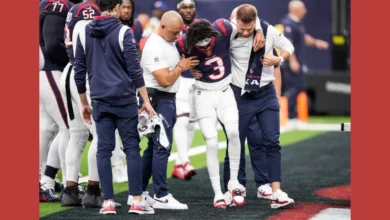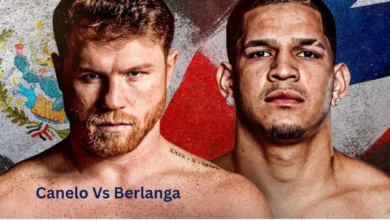When it comes to classic NFL rivalries, few are as fierce and iconic as the Baltimore Ravens vs Pittsburgh Steelers. Fans circle the date the minute the schedule drops. Known for its physicality and tight finishes, this AFC North showdown never disappoints. This article dives deep into the Baltimore Ravens vs Steelers match player stats, exploring standout performances, turning points, and how key players shaped the game.
Grit, Grind, and Gridiron Glory
The most recent Ravens vs Steelers game delivered all the high drama you’d expect. Played under chilly skies with playoff implications on the line, the atmosphere was electric. The Ravens entered the game with momentum from a three-game win streak, while the Steelers were desperate to keep their postseason hopes alive.
ALSO READ: Charity Nye A Life of Privacy Behind a Famous Name
The match ended with the Steelers narrowly edging out the Ravens with a final score of 20-17. But beyond the scoreboard, the Baltimore Ravens vs Steelers match player stats told a story of grit, heart, and elite-level football.
Quarterback Comparison
Lamar Jackson (Ravens)
- Completions/Attempts: 21/31
- Passing Yards: 247
- Touchdowns: 1
- Interceptions: 1
- Rushing Yards: 63
Lamar Jackson showcased his dual-threat ability, constantly challenging the Steelers’ linebackers. He made clutch throws but was also pressured heavily, resulting in one critical interception in the red zone.
Kenny Pickett (Steelers)
- Completions/Attempts: 18/28
- Passing Yards: 192
- Touchdowns: 2
- Interceptions: 0
Kenny Pickett stayed composed and efficient. While not flashy, his two touchdown passes proved crucial. He capitalized on short fields and managed the tempo effectively, reflecting in the Baltimore Ravens vs Steelers match player stats.
ALSO REAAD: Mastering the Power of Gimkit Host A Comprehensive Guide to Engagement and Education
Running Game Analysis
Ravens’ Ground Attack
- Gus Edwards: 14 carries, 88 yards, 1 touchdown
- Justice Hill: 6 carries, 34 yards
Edwards provided bruising runs up the middle, helping the Ravens control time of possession. Hill added versatility with quick bursts outside the tackles.
Steelers’ Rushing Unit
- Najee Harris: 18 carries, 102 yards
- Jaylen Warren: 8 carries, 41 yards
Harris led the charge for Pittsburgh, combining power and patience. His ability to wear down the Ravens’ defensive front was a major storyline in the Baltimore Ravens vs Steelers match player stats.
Wide Receiver and Tight End Performances
| Player | Team | Receptions | Yards | Touchdowns |
|---|---|---|---|---|
| Mark Andrews | Ravens | 6 | 77 | 1 |
| Rashod Bateman | Ravens | 4 | 58 | 0 |
| George Pickens | Steelers | 5 | 83 | 1 |
| Diontae Johnson | Steelers | 4 | 62 | 1 |
Mark Andrews was Jackson’s go-to target, especially on third down. Pickens and Johnson each secured touchdowns, proving their value and impact on the Baltimore Ravens vs Steelers match player stats sheet.
Defensive Dominance
Baltimore Ravens
- Roquan Smith: 10 tackles, 1 sack
- Kyle Hamilton: 6 tackles, 1 interception
- Jadeveon Clowney: 2 QB hits, 1 sack
The Ravens’ defense lived up to their reputation, with Smith commanding the middle and Hamilton making a key interception. However, they struggled to contain Najee Harris late in the fourth quarter.
Pittsburgh Steelers
- T.J. Watt: 2 sacks, 3 tackles for loss
- Minkah Fitzpatrick: 8 tackles
- Alex Highsmith: 1 sack, 1 forced fumble
Watt was a game-wrecker from start to finish. His impact was perhaps the biggest single influence on the Baltimore Ravens vs Steelers match player stats. Fitzpatrick’s leadership in the secondary helped limit explosive plays.
Special Teams Performance
- Justin Tucker (Ravens): 1/2 FG, 2/2 XP
- Chris Boswell (Steelers): 2/2 FG, 2/2 XP
- Key Returner – Calvin Austin III (Steelers): 3 returns, 68 yards
While both kickers were mostly reliable, Boswell’s second-quarter 51-yard field goal stood out. Return yards helped Pittsburgh maintain good field position.
Key Plays That Defined the Game
- Lamar Jackson Interception: Occurred late in the second quarter. Cost the Ravens a potential go-ahead score.
- Kenny Pickett’s 28-yard TD to Pickens: Shifted momentum at the end of the third quarter.
- T.J. Watt’s Fourth-Quarter Sack: Forced a punt and set the Steelers up for their final scoring drive.
Each moment tied directly into the final narrative found in the Baltimore Ravens vs Steelers match player stats, underlining how every stat has a storyline behind it.
| Team | Turnovers | Penalties | Penalty Yards |
|---|---|---|---|
| Ravens | 2 | 6 | 58 |
| Steelers | 0 | 4 | 36 |
The Ravens’ turnovers, including one in the red zone, hurt their rhythm. Discipline played a part too, as reflected in the Baltimore Ravens vs Steelers match player stats.
Baltimore Ravens Vs Steelers Match Player Stats Game Plan Execution

- John Harbaugh (Ravens): Aggressive early with deep shots, but faltered in critical moments.
- Mike Tomlin (Steelers): Balanced attack with smart game management. Trusted his defense to close it out.
Tomlin’s strategy and time management in the fourth quarter helped seal the win and were key to interpreting the overall Baltimore Ravens vs Steelers match player stats.
Rookie and Breakout Players
- Zay Flowers (Ravens WR): 3 catches, 42 yards – Showed promise and speed.
- Joey Porter Jr. (Steelers CB): 5 tackles, 1 pass defended – Locked in and physical in coverage.
These rising stars added depth and excitement to the latest Baltimore Ravens vs Steelers match player stats and gave fans a look at the future of this rivalry.
Injuries and Impact
- Ravens: Ronnie Stanley (OT) left early with a knee issue. Affected pass protection.
- Steelers: Pat Freiermuth (TE) was out pre-game, limiting red-zone options.
Injuries played a role in shifting offensive dynamics, particularly in third-down execution and protection schemes, seen in the Baltimore Ravens vs Steelers match player stats.
Fan and Media Reactions
Fans praised the intensity and heart shown by both teams. Steelers fans celebrated their defense, while Ravens fans were frustrated with missed opportunities. Analysts highlighted the high level of play from Watt and Harris, two names deeply woven into this game’s Baltimore Ravens vs Steelers match player stats.
| Category | Ravens | Steelers |
|---|---|---|
| Total Yards | 361 | 348 |
| Passing Yards | 247 | 192 |
| Rushing Yards | 114 | 156 |
| First Downs | 19 | 21 |
| Third-Down Conversion | 5/13 | 6/12 |
| Time of Possession | 29:47 | 30:13 |
Frequently Asked Questions
Who had the best performance in the Baltimore Ravens vs Steelers match player stats?
T.J. Watt stood out with 2 sacks and 3 tackles for loss, constantly disrupting the Ravens’ offense. Najee Harris also had a dominant game, rushing for over 100 yards, giving the Steelers balance and control late in the game.
How did Lamar Jackson perform in the latest Ravens vs Steelers game?
Lamar Jackson showed solid dual-threat skills, throwing for 247 yards and a touchdown, along with 63 rushing yards. However, his red-zone interception was a costly mistake that impacted the final outcome seen in the Baltimore Ravens vs Steelers match player stats.
Which rookie made an impact in the Ravens vs Steelers matchup?
Zay Flowers for the Ravens had 3 receptions for 42 yards, displaying speed and potential. Joey Porter Jr. of the Steelers contributed 5 tackles and broke up a key pass, highlighting his growing importance in Pittsburgh’s secondary.
Conclusion
The Baltimore Ravens vs Steelers match player stats revealed more than just numbers—they told a story of resilience, rivalry, and respect. With both teams fighting for playoff positions, each stat carried weight. From Lamar Jackson’s mobility to T.J. Watt’s dominance, the game reinforced why this matchup is must-watch football. As the AFC North battle continues, fans can expect more stats, more hits, and more drama in the next showdown.




